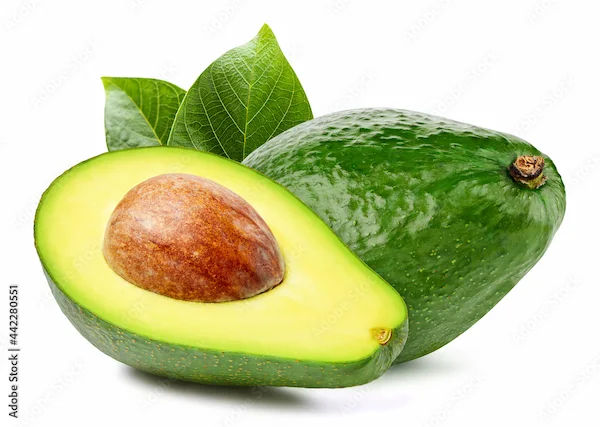Almond Milk in Ayurveda: Benefits, Uses, and Side Effects
Explore almond milk benefits in Ayurveda. Learn how to use this Ayurvedic drink, who should avoid it, nutrition facts, and side effects—evidence-based.

Written by Dr. Dhankecha Mayank Dineshbhai
Reviewed by Dr. Md Yusuf Shareef MBBS
Last updated on 13th Jan, 2026

Introduction
Almond milk has become a popular choice for people who want a dairy-free option that is light, tasty, and easy to digest. In Ayurveda, warm almond preparations are considered a nourishing Ayurvedic drink. If you’re curious about almond milk benefits, how to use it in an Ayurvedic way, and what side effects to watch for, this guide blends traditional wisdom and modern evidence to help you make informed choices.
What Is Almond Milk? Ayurveda vs Modern Plant-Based Versions
- Traditional context: In Ayurvedic practice and Indian culinary tradition, “almond milk” often refers to a warm drink made by blending soaked, peeled almonds into milk (usually cow’s milk) with gentle spices like cardamom or saffron. It’s considered soothing and nourishing.
- Modern plant-based almond milk: Today, almond milk commonly means a dairy-free beverage made by blending almonds (or almond paste) with water, then straining. Many store-bought versions are fortified with calcium and vitamin D, and some are sweetened or flavoured.
Both can be enjoyed, but they are not identical:
- Homemade dairy-based almond milk (badam milk) contains protein from dairy.
- Commercial almond milk is naturally lactose-free and can be low in calories and carbohydrates when unsweetened, but usually contains much less protein than cow’s milk or soy milk.
Almond Milk Benefits: Ayurveda and Modern Science
Below are potential almond milk benefits viewed through two lenses - traditional Ayurvedic use and current nutrition science.
Traditional Ayurvedic Perspective (Context, Not a Medical Claim)
- Comforting and gentle: Warm, mildly spiced almond drinks are traditionally seen as calming and nourishing, especially in cooler seasons or for those who feel dry, cold, or depleted.
- Classic preparation: Soaked and peeled almonds are blended with warm milk and spices such as cardamom, saffron, cinnamon, ginger, or a pinch of turmeric. Honey or a small amount of jaggery may be added for taste.
- Note: These views reflect traditional Ayurvedic practice and are not the same as scientific evidence.
Evidence-Based Nutrition Perspective
- Lactose-free option: Almond milk is naturally lactose-free, helping those with lactose intolerance enjoy a milk-like beverage without discomfort.
- Low in calories and carbohydrates when unsweetened: Unsweetened varieties are relatively low in calories and sugar, supporting calorie-conscious diets. Always check the label.
- Fortified calcium and vitamin D: Many brands fortify almond milk to help support bone health - choose fortified options and shake the container before pouring.
- Vitamin E: Almonds are rich in vitamin E, an antioxidant, and commercial almond milk often provides some, depending on brand.
- Low saturated fat and no cholesterol: Unsweetened almond milk is low in saturated fat and contains no dietary cholesterol.
Consult Top Specialists
How to Enjoy Almond Milk as an Ayurvedic Drink?
Here’s hwo you can enjoy almond milk:
Choosing a Product
- Look for unsweetened, fortified almond milk (calcium and vitamin D).
- Check ingredient lists for added sugars and low protein content - pair with protein-rich foods such as eggs, yoghurt, legumes, tofu, or nuts and seeds.
- For homemade almond milk, maintain hygiene: prepare with clean utensils, refrigerate promptly, and consume within a few days.
A Simple Warm Almond Milk Recipe (Dairy-Free)
- Gently heat unsweetened almond milk over low heat.
- Add a pinch of cardamom or cinnamon; optionally include saffron or turmeric.
- Sweeten lightly, if desired, with honey or date syrup after heating.
- Sip warm - many find warm drinks soothing in the evening, though scientific evidence for sleep benefits is limited.
Traditional Pairing Tips (From Ayurveda, Not Medical Rules)
- Traditionally, milk-based drinks are taken alone or with mild spices, not with heavy or sour meals.
- Try almond milk as a stand-alone snack or an evening beverage.
Almond Milk vs Dairy and Other Plant Milks
- Protein: Almond milk provides less protein per cup than dairy or soy milk. Plan protein elsewhere in your diet.
- Calcium and vitamin D: Fortified almond milk helps meet needs, but amounts vary by brand.
- Maintain a balanced diet and safe sun exposure for vitamin D.
- Iodine: Many plant milks are lower in iodine than dairy. Include other sources such as iodised salt (in moderation) or seafood if appropriate.
- For children: For toddlers, fortified soy milk is the only nutritionally comparable dairy alternative recognised by health authorities. Almond milk is generally not suitable as the main milk source for young children.
Who Should Be Cautious: Side Effects and Risks
Here’s who should be cautious:
- Tree nut allergy: Almond milk is unsafe for people with tree nut allergies. Always read labels.
Infants and toddlers: Do not give almond milk to infants as a substitute for breast milk or formula. Consult a paediatrician for suitable alternatives. - Added sugars: Many flavoured or sweetened almond milks contain added sugar. Choose unsweetened varieties and add minimal natural sweeteners if needed.
- Low protein: If switching from dairy to almond milk, ensure you get enough protein from other foods.
- Medication timing: Calcium-fortified beverages can interfere with absorption of certain medicines (e.g. antibiotics, levothyroxine). Take these several hours apart as advised by your clinician.
- Kidney or thyroid conditions: People with chronic kidney disease or thyroid disorders may need tailored nutrition guidance. Check labels and seek medical advice when needed.
Practical Shopping and Storage Tips
- Prioritise unsweetened, fortified varieties.
- Read labels for protein, added sugars, and sodium.
- Shake well before pouring to redistribute minerals.
- Refrigerate after opening and follow use-by dates.
- Discard if smell, taste, or texture changes.
When Almond Milk Fits Well and When It Doesn’t
Almond milk can be a light, versatile beverage suitable for many lifestyles. As an Ayurvedic drink served warm with gentle spices, it can be calming and enjoyable. As a modern alternative, it suits those with lactose intolerance or who prefer plant-based diets. However, it’s not a full nutritional substitute for dairy or soy milk due to lower protein and iodine content.
If almond milk is your preferred drink, pair it with protein-rich foods, select fortified versions, and avoid excess added sugars. For children, pregnant individuals, or those with allergies or chronic conditions, seek personalised advice from your healthcare provider.
Consult Top Specialists
Consult Top Specialists

Ms. Soma Saha
clinical nutrition
17 Years • B.Sc. - Home Science (Food & Nutrition), M.Sc. - Home Science (Food & Nutrition)
Kolkata
Dr Utsa Basu Clinic, Kolkata
(50+ Patients)

Ms. Samapti Maity
Dietician
16 Years • MSc. (Clinical Nutrition & Dietitics), NDEP, Course in Maternal Infant Young Child Nutrition.Diploma in Sports Nutrition, Diploma in Diabetic educator, FODMAP Specialist
Kolkata
BIENETRE CLINIC, Kolkata

Ms. Malabika Datta
Dietician
17 Years • Msc. in Dietetics & Food Service Management
Kolkata
Dr Utsa Basu Clinic, Kolkata
(25+ Patients)

Dr. Sushith C
General Physician
2 Years • MBBS
Bengaluru
PRESTIGE SHANTHINIKETAN - SOCIETY CLINIC, Bengaluru

Dr Darshana R
General Physician/ Internal Medicine Specialist
15 Years • MBBS, MD, DNB (Internal Medicine), Diploma in Allergy, Asthma and Immunology , Fellowship in Diabetes
Bengaluru
Apollo Clinic, JP nagar, Bengaluru
(125+ Patients)
Consult Top Specialists

Ms. Soma Saha
clinical nutrition
17 Years • B.Sc. - Home Science (Food & Nutrition), M.Sc. - Home Science (Food & Nutrition)
Kolkata
Dr Utsa Basu Clinic, Kolkata
(50+ Patients)

Ms. Samapti Maity
Dietician
16 Years • MSc. (Clinical Nutrition & Dietitics), NDEP, Course in Maternal Infant Young Child Nutrition.Diploma in Sports Nutrition, Diploma in Diabetic educator, FODMAP Specialist
Kolkata
BIENETRE CLINIC, Kolkata

Ms. Malabika Datta
Dietician
17 Years • Msc. in Dietetics & Food Service Management
Kolkata
Dr Utsa Basu Clinic, Kolkata
(25+ Patients)

Dr. Sushith C
General Physician
2 Years • MBBS
Bengaluru
PRESTIGE SHANTHINIKETAN - SOCIETY CLINIC, Bengaluru

Dr Darshana R
General Physician/ Internal Medicine Specialist
15 Years • MBBS, MD, DNB (Internal Medicine), Diploma in Allergy, Asthma and Immunology , Fellowship in Diabetes
Bengaluru
Apollo Clinic, JP nagar, Bengaluru
(125+ Patients)
More articles from General Medical Consultation
Frequently Asked Questions
Is almond milk good for you?
Almond milk can be a healthy choice for many adults—especially when unsweetened and fortified with calcium and vitamin D. It is lactose-free, typically low in calories, and often provides vitamin E. However, it is low in protein compared with dairy or soy milk, so plan other protein sources in your diet. (Harvard Health Publishing; Cleveland Clinic)
Is almond milk an ayurvedic drink?
In traditional Ayurveda, warm milks with soaked, peeled almonds and mild spices are considered nourishing. Today’s store-bought almond milk is a modern plant-based version. You can enjoy almond milk in an Ayurvedic way by serving it warm with gentle spices, keeping in mind that these traditional ideas are not the same as modern clinical evidence.
Does almond milk help with weight loss?
Unsweetened almond milk is generally lower in calories than dairy milk, which can help reduce overall calorie intake. Weight management depends on your overall eating pattern and activity level. Choose unsweetened varieties and watch portion sizes of other foods. (Harvard Health Publishing)
Can I give almond milk to my baby or toddler?
Do not give almond milk to infants as a replacement for breast milk or formula. For toddlers, U.S. guidance recommends pasteurised whole cow’s milk or fortified soy beverage; almond milk typically doesn’t provide enough protein and key nutrients to serve as the main milk for young children. Always ask your paediatrician. (WHO; CDC)
Are there any side effects or interactions with almond milk?
People with tree nut allergies should avoid almond milk. Sweetened versions can add excess sugar. Calcium in fortified almond milk can reduce absorption of certain medications (such as some antibiotics or levothyroxine) if taken together—ask your clinician about timing. Those with kidney disease or thyroid conditions should seek personalised nutrition advice. (CDC; Mayo Clinic)




